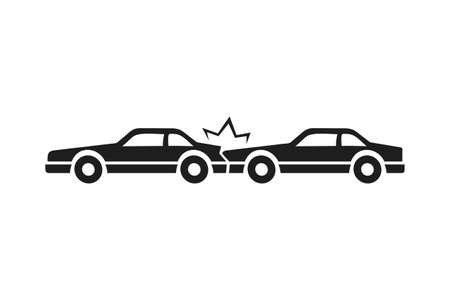1. Introduction to Car Auctions
Car auctions offer a unique way to purchase vehicles, often at lower prices compared to traditional dealerships. Whether youre looking for a bargain, a rare model, or just an alternative buying experience, car auctions can be an exciting option. However, understanding how these auctions work and the different types available is essential to making a smart purchase.
How Car Auctions Work
Car auctions function similarly to other types of auctions: buyers place bids on vehicles, and the highest bidder wins. Auctions can be conducted in person or online, with different formats based on the auction type. Some auctions require pre-registration, and others may have bidding fees or restrictions on participation.
Types of Car Auctions
There are several types of car auctions catering to different buyers. Each has its own advantages and challenges. Here’s a breakdown of the most common types of car auctions:
| Type | Description | Who Can Participate |
|---|---|---|
| Public Auctions | Open to general buyers, offering various vehicles, including repossessed, government, and fleet cars. | Anyone |
| Dealer-Only Auctions | Restricted to licensed dealers, often featuring trade-in vehicles from manufacturers or lease returns. | Licensed Dealers Only |
| Online Auctions | Conducted over the internet, allowing buyers to bid on cars remotely without attending in person. | Varies by Platform |
| Government Auctions | Sell surplus or retired government vehicles, often well-maintained and sold at competitive prices. | Public or Businesses |
| Salvage Auctions | Offer damaged or totaled vehicles, typically purchased for parts or repair. | Varies (Some Require Dealer License) |
Key Considerations Before Participating
Before jumping into a car auction, its important to research the auction type, its rules, and the costs involved. Some auctions may charge registration or buyer fees, and most vehicles are sold “as-is,” meaning there are no guarantees about their condition. Attending a few auctions as an observer can help you understand the process before making a bid.
2. Pros of Buying a Car at Auction
Buying a car at an auction can offer several advantages. Whether youre looking for a great deal or a unique vehicle, auctions provide opportunities that traditional dealerships often cant match. Here are some of the key benefits of purchasing a car at an auction.
Significant Cost Savings
One of the biggest reasons people choose to buy cars at auctions is the potential for cost savings. Vehicles at auctions are often sold at lower prices compared to dealership listings. This is because many auction cars come from fleet sales, lease returns, or repossessions, allowing buyers to get great deals.
Typical Price Differences
| Car Source | Average Price |
|---|---|
| Dealership | Higher, includes dealer markup |
| Auction | Lower, direct bidding with no middleman |
If youre on a budget, auctions can be a great way to find a reliable vehicle at a fraction of the cost.
Wide Variety of Vehicles
Another advantage of auctions is the large selection of vehicles available. Unlike dealerships, which may focus on specific brands or models, auctions feature cars from various sources. You can find economy cars, luxury vehicles, trucks, SUVs, and even vintage or rare models.
Types of Vehicles Commonly Found at Auctions
- Used cars from private sellers
- Government and fleet vehicles
- Luxury and high-performance cars
- Repossessed and salvage vehicles
With so many options, youre more likely to find a vehicle that suits your needs and budget.
Quick and Efficient Transactions
Unlike traditional car-buying experiences that might take days or even weeks, auctions are designed for fast transactions. Once you win the bid, the process of purchasing and finalizing paperwork is usually streamlined. This is especially beneficial for buyers who need a vehicle quickly.
Speed Comparison: Auction vs. Dealership
| Process | Average Time |
|---|---|
| Dealership Purchase | Several days to a week |
| Auction Purchase | Same day |
This faster process removes the lengthy negotiation steps found at traditional dealerships and allows buyers to secure a car much quicker.
![]()
3. Cons of Buying a Car at Auction
Limited Ability to Inspect Vehicles
One of the biggest risks of buying a car at auction is the limited opportunity to inspect the vehicle before bidding. Unlike buying from a dealership or a private seller, you usually won’t get to take the car for a test drive or have a mechanic check it out. Most auctions only allow a brief visual inspection, which makes it difficult to determine if there are hidden mechanical problems.
As-Is Sales with No Refunds
Cars sold at auctions are typically sold “as-is,” meaning there are no warranties or guarantees. If you win a bid and later discover the car has major mechanical issues, you have no option to return it or get a refund. This makes it a high-risk purchase, especially for buyers who don’t have experience in evaluating cars.
Competition from Experienced Bidders
Car auctions often attract professional dealers and experienced buyers who know how to bid strategically. They may have better knowledge of vehicle values and can outbid casual buyers, driving up prices. If youre not careful, you might end up overpaying for a car simply due to the fast-paced nature of auctions.
Key Risks of Buying at Auction
| Risk | Impact |
|---|---|
| Limited Inspection | Hard to spot hidden issues |
| As-Is Sales | No refunds or repairs covered |
| Experienced Competition | Prices may get pushed higher |
4. Tips for a Successful Auction Purchase
Buying a car at an auction can be a great way to find a deal, but it also comes with risks. To make a smart purchase, its important to be well-prepared. Here are some essential tips to help you get the best value at a car auction.
Do Your Research Beforehand
Before attending an auction, research the types of vehicles that will be available. Many auctions provide a list of cars in advance, allowing you to check their history, typical market value, and any potential red flags.
Key Research Points:
- Check the vehicles history report using the VIN.
- Look up the car’s market value through pricing guides like Kelley Blue Book and Edmunds.
- Read reviews on the specific make and model for known issues.
Set a Budget and Stick to It
It’s easy to get caught up in the excitement of bidding, so having a set budget ahead of time is crucial. Consider not only the purchase price but also any necessary repairs, registration, and insurance costs.
Budget Planning Guide:
| Expense | Estimated Cost |
|---|---|
| Vehicle Purchase Price | Varies |
| Auction Fees | Typically 5-10% of sale price |
| Repairs or Maintenance | $500 – $2,000 (Depending on condition) |
| Registration & Taxes | Varies by state |
| Insurance | Depends on vehicle & coverage |
Understand Auction Fees and Rules
Apart from the car’s price, auctions often have additional fees that buyers must pay. These can include buyer’s premiums, documentation fees, and transportation costs.
Common Auction Fees:
- Buyer’s Premium – A percentage added to the final bid price.
- Title & Documentation Fees – Charges for paperwork processing.
- Transport Costs – If the auction is far from home, consider how you’ll get the car back.
Inspect the Car When Possible
Many auction cars are sold “as-is,” meaning there are no guarantees on their condition. If the auction allows inspections, take advantage of it. Look for visible signs of damage, check under the hood, and if possible, bring a mechanic to evaluate the car.
Inspection Checklist:
- Check for fluid leaks.
- Examine tires for even wear.
- Look for rust or frame damage.
- Test the battery condition.
- Inspect the interior for excessive wear and odors.
By preparing ahead of time, understanding the costs involved, and carefully inspecting potential purchases, you can increase your chances of getting a great deal at a car auction without unexpected surprises.
5. Final Considerations
Buying a car at an auction can be an exciting way to get a great deal, but it also comes with risks. Before deciding if this is the right option for you, consider key factors like your level of knowledge, budget flexibility, and willingness to handle potential repairs.
Key Takeaways
- Lower Prices: Auctions often provide vehicles at a lower price compared to dealerships, but not all cars are in great condition.
- Limited Inspection: You won’t always have the chance to fully inspect the car before purchasing.
- As-Is Sales: Most auction purchases are final, meaning you take full responsibility for any repairs.
- Experience Matters: If youre unfamiliar with car auctions, you might end up paying more than expected or missing hidden issues.
- Additional Fees: Auction houses often charge buyers fees, which should be factored into your budget.
Alternative Ways to Buy a Used Car
If buying at an auction seems too risky, there are other ways to purchase a used vehicle that may be a better fit for you.
| Option | Pros | Cons |
|---|---|---|
| Dealerships | Inspected vehicles, financing options, warranties | Higher prices, added fees |
| Private Sellers | Lower prices, room for negotiation | No warranties, risk of hidden issues |
| Certified Pre-Owned (CPO) Programs | Manufacturer-backed inspections and warranties | More expensive than non-certified used cars |
| Online Marketplaces | Wide selection, ability to compare prices easily | Potential scams, limited ability to inspect before purchase |
Making the Right Choice for You
Deciding whether to buy at an auction or explore other purchasing options depends on your needs, budget, and willingness to take on potential risks. If you have experience with cars and are willing to handle repairs, auctions might be a great way to find a bargain. However, if you prefer more security and guarantees, buying from a dealership or certified pre-owned program may be a better option.


